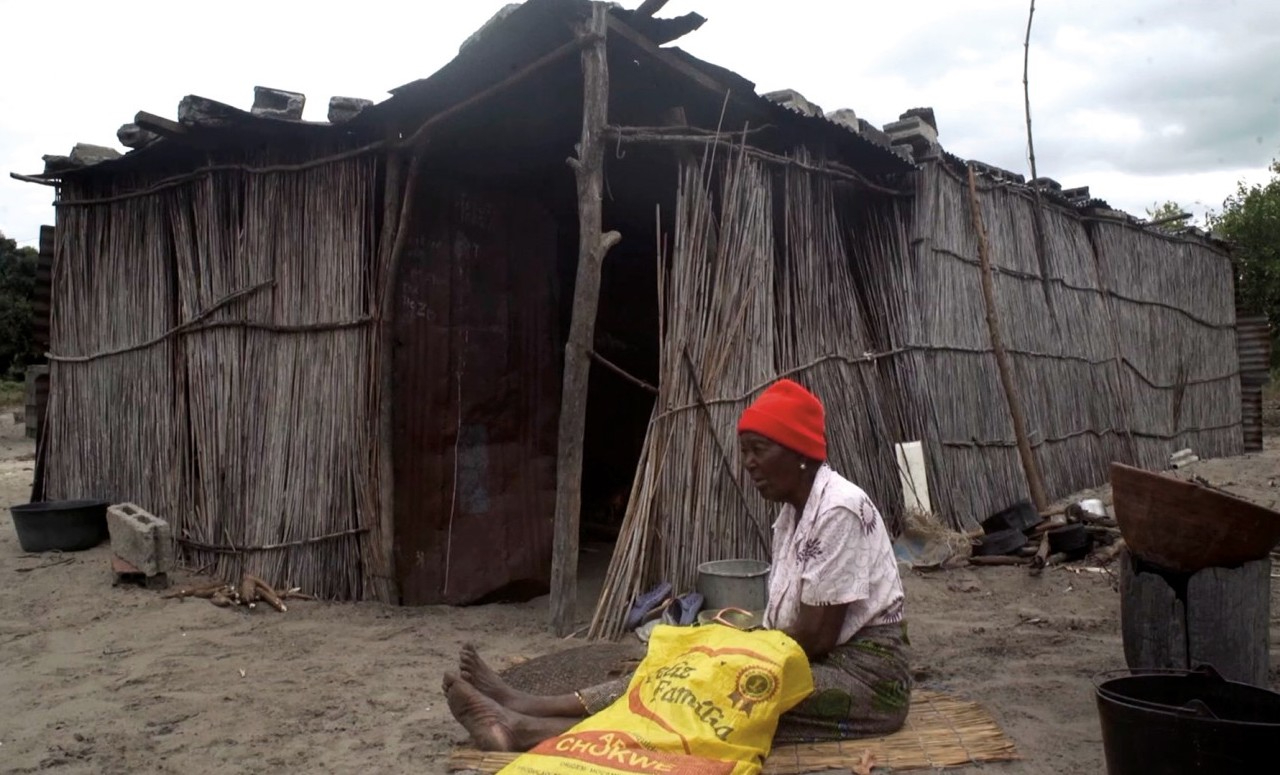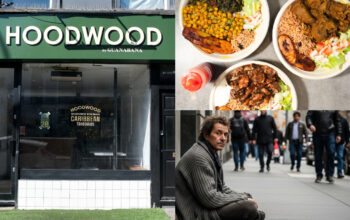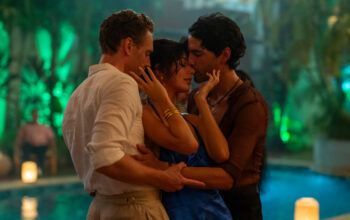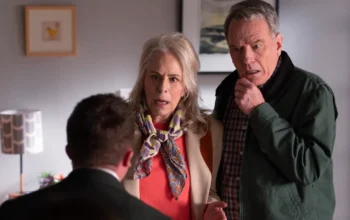“It was a trauma-healing process for me”: Inadelso Cossa on The Nights Still Smell of Gunpowder at Berlinale 2024

As Inadelso Cossa puts it on his website, he was “compelled to unravel the narrative woven into the film The Nights Still Smell of Gunpowder”. By returning to his grandmother’s village, he recalls his childhood stories and links them to Mozambique’s political situation. His feature is a testament to everything that has happened and a project that was supposed to heal his past traumas. The Upcoming spoke to the director during Berlinale 2024 to examine his inspirations and to learn more about his background and the country’s intricate history.
You’ve decided to return to your grandmother’s village for your latest documentary. What was it like to see this place once again?
It was complicated. I’ve been away for almost 20 years, so to some extent, I was happy to see the place of my childhood. The village was still the same: the landscapes and the leaves on the floor looked similar, so it felt like time had stopped there. Before turning on my camera, it was really important for me to revisit all my childhood places and recall some memories. It took me some time to realise that some of the places I saw were the locations I once knew; today they are unfortunately destroyed by war. I had to capture the way I remembered the village. It was a trauma-healing process for me. Although I hadn’t experienced the war, all those visceral emotions were still inside me. For me, those places of ruins reminded me of positive memories, of childhood happiness, while for other people it was a signifier of the ongoing war. I had to understand this contrast and their situation.
Why did you decide to come to terms with the past? Was there a tipping point that made you realise that you must make this film?
Seven years ago, there was an ongoing war happening and, to be quite honest, it triggered my childhood recollections. I started asking myself: “Why have I never experienced the war?” It was strange to me that I had no remembrance of that. Then I recalled that my grandmother had always been telling me that, in fact, the bombardments were fireworks, so in a way, she tried to secure me from all the stress. I wanted to make a film about real people telling me their actual stories. I decided to film the invisible, to focus on the traumas, their emotions, the pain and the resonance of the war. You can feel it in their vocabulary, and the way they speak and interact within the community. The entire neighbourhood was strongly affected by the years of a horrendous war. Additionally, I wanted to meet my grandmother, to not only heal myself, but also to spend some time with her. And, above all, on a much larger scale, I aimed to provoke my country’s memory.
In the end, was it an auto-therapeutical project for you?
It helped me a lot, but I am still concerned about the other villages. I was lucky to be fully protected, yet so many children are still endangered. The war really devastated the entire population on all levels. There is still a huge scar that has to be healed. All of it still stays underneath the community’s skin, it’s really hard to just forget about the past and its repercussions. We still carry the pain and the noise trauma with us, we are still vulnerable to sound and other images.
A bulk of this film focuses on your conversations with your grandmother, who now struggles with Alzheimer’s. Did you have a specific approach towards talking to her and maybe trying to bring back her memories?
I’ve done my research, but I did not want to bring a very specific, academic approach to The Nights Still Smell of Gunpowder. I wanted to use what I remembered from her and also the most effective way to bring her memories back was to use objects, like my grandfather’s chair and his clothes, or photographs and infallible songs, which she remembered by heart. They were important and I intentionally wanted to show this process of bringing her back to all those places and memories. It was interesting to see how she would react and how she even resisted going back to the past. Exposing all of those moments was also pivotal for me.
You reached those metaphysical aesthetics by shooting simultaneously during the day and the night. It reminded me of Gabriel Garcia Marquez’s novels. Was it also your goal to distort this sense of reality in your film?
The story was somewhat scripted, but you never fully follow the script. There was a personal theme of reconnecting with my grandmother, however, I also used to build the spiritual level of the film, to present something out of the ordinary narrative. It’s really banal to just use some interviews in the documentary: the film is more than that, I had to create additional layers to make the image more provocative. The village has a strong, spiritual atmosphere and my goal was to capture it.
Jan Tracz
The Nights Still Smell of Gunpowder does not have a UK release date yet.
Read more reviews from our Berlin Film Festival 2024 coverage here.
For further information about the event visit the Berlin Film Festival website here.























Facebook
Twitter
Instagram
YouTube
RSS